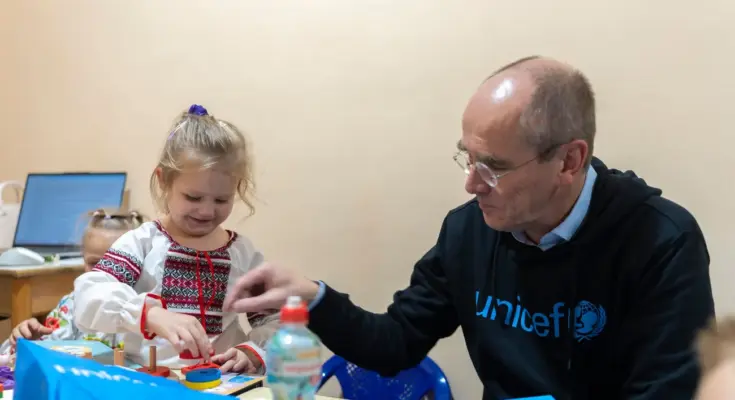After nearly four years of Russia’s war of aggression, according to Unicef, seven out of ten children are in refugee camps Ukraine affected by poverty. “They lack basic things for everyday life,” Unicef German Managing Director Christian Schneider told the German Press Agency after a visit to the Kharkiv region in eastern Ukraine. However, many people are still willing to stay, even in areas close to the front line. Of the seven and a half million children, about five million are still in Eastern European countries at war.
Before winter arrives, the UN organization is currently supplying generators to schools and kindergartens in light of the ongoing power outages, and helping to close and replace windows. “So that this facility can be a warm place for children in the midst of winter which is approaching,” said Schneider. In areas close to the front line, it is also about equipping shelters in educational institutions.
“A life full of fear, nightmares and attacks”
The goal is to give children stability and allow for face-to-face learning. He also met four-year-old girls and boys in kindergarten. “In their short lives, they had never known anything other than life in an air raid shelter, a life full of fear, nightmares and constant new attacks,” Schneider said. Meanwhile, delays in learning are becoming more frequent due to the cessation of the teaching process due to air strikes and power outages. “We assume, for example, that 15 year olds are now on average two years behind in reading,” said the Unicef representative.
According to local children’s services staff, more than 80 percent of young children show signs of emotional distress. “Partial developmental delay, caused by the shock of war.” Every second child misses out on preschool because there are almost no safe kindergartens. And the impact of war is also visible in older children. “About a third of young people are so affected by sadness and depression that it is difficult for them to carry out daily activities,” Schneider said.
His parents were tired too
The stress of war also took its toll on mothers and fathers. “Many old people are in the area because of the long war Kharkov it is very tiring for people who are near the front line,” said Schneider. This is why open kindergartens and schools with shelters are so important. It is a relief for mothers to know that their children are in a safe place for at least a few hours a day, said Unicef’s managing director.
In February 2022, the Russian army invaded Ukraine. These attacks, among other things, led to the largest refugee movement in Europe since the Second World War. UNICEF is the United Nations Children’s Fund.
© dpa-infocom, dpa:251122-930-325374/1



